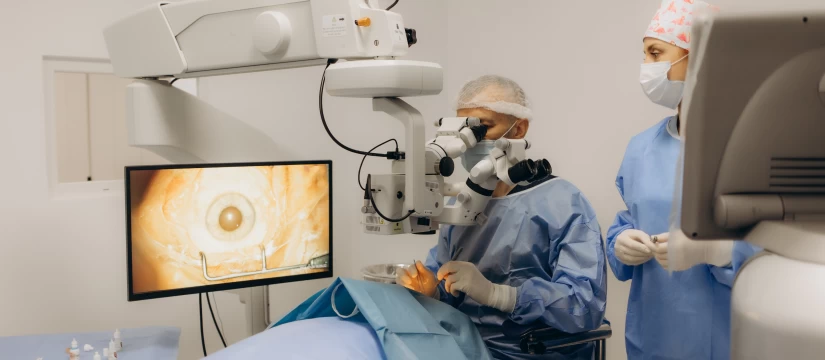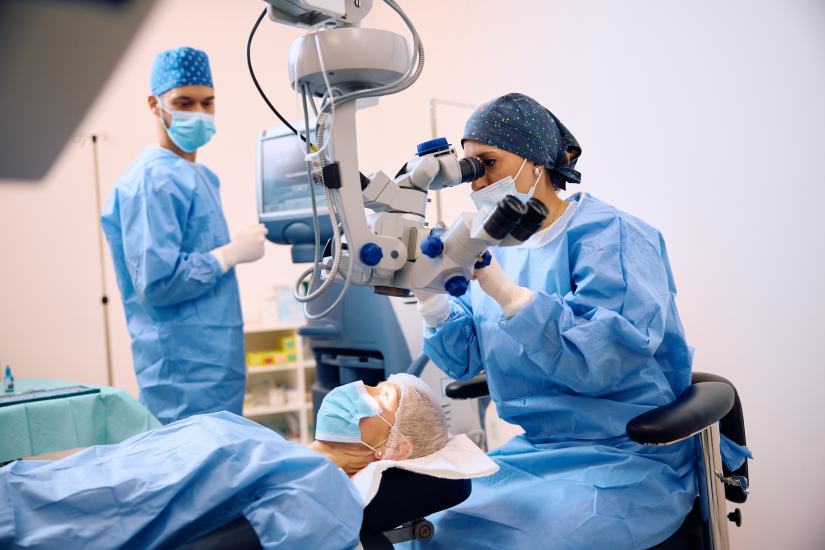How to Prepare for Ophthalmology Surgery in Turkey: A Complete Guide
Undergoing ophthalmology surgery—whether it’s for LASIK, cataract surgery, glaucoma treatment, or retinal procedures—is a significant decision that can dramatically improve your vision and quality of life. Turkey has become a top destination for medical tourism, especially for eye care, due to its advanced medical technology, highly skilled surgeons, and affordable treatment options.
If you’re planning to undergo ophthalmology surgery in Turkey, proper preparation is crucial to ensure a smooth and successful surgery and recovery. This article will guide you through the essential steps to take before your surgery, from initial consultation to post-operative planning.
1. Research Your Options and Choose the Right Clinic
Before undergoing ophthalmology surgery in Turkey, it’s essential to research your options and choose a reputable clinic. Turkey is home to many top-tier medical facilities, particularly in cities like Istanbul, Antalya, and Ankara, where international patients often travel for treatment.
What to Consider:
- Clinic Reputation: Look for clinics with strong reputations, good reviews, and accreditation from organizations such as the Joint Commission International (JCI) or ISO. Accreditation ensures that the clinic adheres to high standards of care and safety.
- Surgeon’s Experience: Make sure the surgeon performing the procedure is experienced and specializes in the type of surgery you need. Check for certifications, qualifications, and training from recognized institutions.
- Technology: Ensure that the clinic is equipped with the latest technology and techniques, such as femtosecond lasers for LASIK or advanced cataract surgery technology.
- Patient Care Services: Many clinics offer specialized services for international patients, including translators, concierge services, and all-inclusive treatment packages. Consider these aspects to make your experience as comfortable as possible.
2. Initial Consultation and Eye Examination
The first step in preparing for ophthalmology surgery is the initial consultation with your surgeon. Many clinics in Turkey offer virtual consultations for international patients, allowing you to discuss your condition and surgery options without needing to be physically present.
What to Expect:
- Eye Exam: Your surgeon will conduct a thorough eye examination, including tests to assess your visual acuity, corneal thickness (for LASIK and SMILE), pupil dilation, and overall eye health.
- Medical History Review: You’ll also be asked about your general health, any underlying medical conditions, and medications you are currently taking. This is important to ensure you are a suitable candidate for surgery.
- Surgery Discussion: Your surgeon will explain the different types of surgeries available (e.g., LASIK, SMILE, cataract surgery) and recommend the most appropriate procedure based on your eye condition.
- Expectations: You’ll also discuss the potential risks and expected outcomes of the surgery, as well as the recovery process.
Pre-Surgery Instructions:
After your initial consultation, the surgeon will provide specific pre-surgery instructions to ensure that you’re fully prepared for your procedure. These may include:
- Avoiding makeup: Do not wear makeup (especially eye makeup) on the day of the surgery to reduce the risk of infection.
- Stopping certain medications: If you’re on certain medications (like blood thinners), you may need to stop taking them a few days before surgery.
- Eye drops: You may be prescribed eye drops to use in the days leading up to the surgery to ensure your eyes are in the best possible condition.
3. Travel and Logistical Planning
Traveling to Turkey for surgery requires careful planning, especially if you're an international patient. Here are some tips to ensure a smooth travel experience:
Visa and Travel Documents
Ensure that you have the necessary travel documents, including a passport and a tourist visa (if required, depending on your country of residence). Check the visa requirements for Turkey and apply well in advance of your trip.
Flight and Accommodation
- Booking Flights: Choose a flight to one of Turkey’s major cities, such as Istanbul, Antalya, or Ankara. Many clinics offer assistance with flight bookings or can recommend the most convenient airports.
- Accommodation: Many clinics offer all-inclusive packages that include accommodation in nearby hotels. If not, you can find plenty of accommodation options close to medical centers. Some clinics also arrange transport to and from your hotel to the clinic for your appointments and surgery.
- Medical Tourism Packages: If you’ve chosen an all-inclusive package, confirm that it includes everything you need, such as pre-surgery exams, surgery, accommodation, transportation, and post-surgery care.
4. Financial Planning and Insurance
Laser eye surgery and other ophthalmology procedures in Turkey are significantly more affordable than in many Western countries, but it’s still important to plan your finances and understand the costs involved.
What to Consider:
- Cost of Surgery: Research the typical cost range for your procedure in Turkey. For example, LASIK can cost between €1,000 and €2,500 per eye, while SMILE is usually priced between €1,500 and €3,000 per eye.
- All-Inclusive Packages: Many Turkish clinics offer all-inclusive packages that include not just the surgery, but also pre-surgery consultations, medications, follow-up visits, accommodation, and transportation. These packages provide better value and reduce the need for separate arrangements.
- Payment Methods: Ensure you know the accepted payment methods and inquire about payment plans or financing options that may be available for international patients.
- Travel Insurance: Some travel insurance policies may cover medical expenses related to surgery. Check with your insurance provider to see if they cover medical tourism in Turkey and whether your ophthalmology surgery is covered.
5. Pre-Surgery Preparation and Rest
In the days leading up to your surgery, there are several key steps to ensure that you’re fully prepared:
What to Do:
- Rest Your Eyes: Before surgery, limit the amount of time you spend on screens or reading. Resting your eyes helps prevent additional strain.
- Stay Hydrated and Eat Well: Eating healthy foods and drinking plenty of water before surgery will help your body recover more quickly. Avoid alcohol or heavy meals before surgery, especially if anesthesia will be used.
- Bring a Companion: If possible, bring a friend or family member with you, especially for the day of surgery. While the procedure is generally quick, having someone there to assist with transportation or translation services can be helpful.
6. Day of Surgery: What to Expect
On the day of your surgery, you will arrive at the clinic for the procedure. Here’s what you can expect:
- Final Preparations: You’ll be asked to change into a surgical gown and take any final pre-surgery medications or eye drops.
- Local Anesthesia: Most ophthalmology surgeries in Turkey, like LASIK or SMILE, use local anesthetic eye drops to numb the eye. You’ll be awake during the procedure, but you won’t feel any pain.
- Surgery Duration: The surgery itself typically takes 15-30 minutes per eye, depending on the type of procedure. It is performed on an outpatient basis, so you’ll be able to go home the same day.
7. After Surgery: Recovery and Follow-Up Care
After surgery, you’ll need to follow your surgeon’s instructions for a successful recovery.
Post-Surgery Care:
- Rest and Avoid Eye Strain: After surgery, you’ll need to avoid activities like reading, watching TV, or using a computer for a few days to give your eyes time to heal.
- Medications: You’ll likely be prescribed eye drops to reduce inflammation and prevent infection. It’s important to follow the prescribed regimen carefully.
- Protect Your Eyes: Wear protective eyewear or a shield at night to prevent accidentally rubbing your eyes while sleeping. Sunglasses can also help protect your eyes from light sensitivity.
- Follow-Up Appointments: You’ll have several follow-up visits to monitor healing, ensure proper recovery, and address any concerns. These visits are essential to ensure a successful outcome.
 Clinic Booking
Clinic Booking



 No Record
No Record